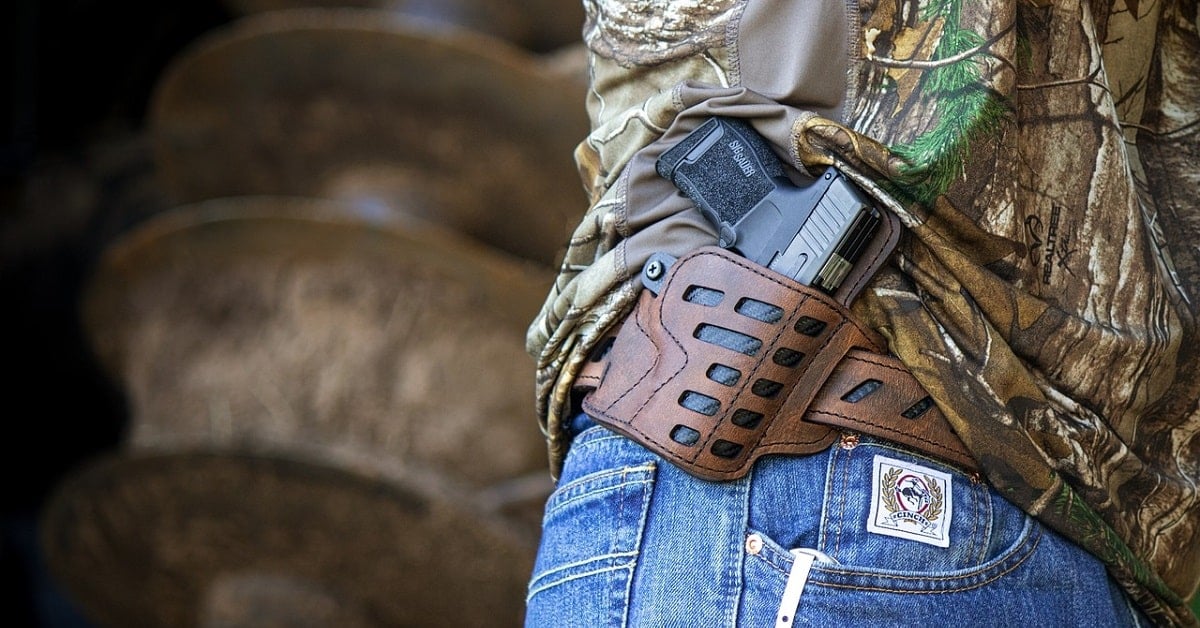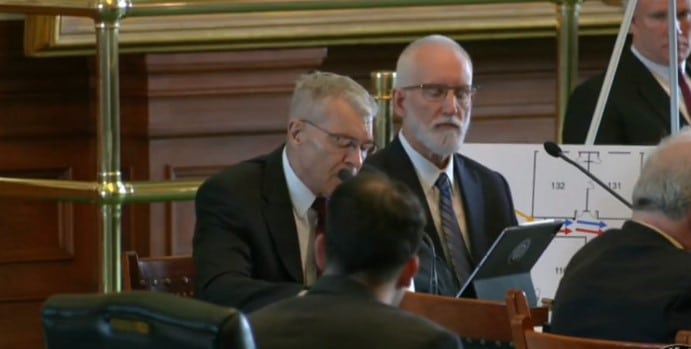Constitutional carry is spreading.
Whether people are for it or against it, it’s hard to ignore the increasingly widespread adoption of permitless carry as state law. At the time this article was written, 25 states have already adopted constitutional carry, and it appears very possible that South Carolina will become the 26th.
But what about North Carolina?
Background
North Carolina is an interesting state in a lot of ways. Forbes points out that North Carolina is one of the most moved-to states in the country at the moment, and there’s little reason to believe that growth will slack off any time soon.
On top of that, North Carolina is about as purple a state as it gets. A major battleground state in recent presidential elections, only one candidate has secured more than 50% of the vote in the state since 2008, and the widest margin of victory over that time was 3.6%, according to 270 To Win.
A telling symptom of this political disharmony is the major party split between the governor’s office and the legislature — the N.C. House and Senate have commanding conservative majorities, and Governor Roy Cooper, in his second term now, is a Democrat.
Where the Legislature Stands
There are 50 seats in the North Carolina Senate and 120 in the House, both of which are dominated by Republicans, per WFAE. There are 30 Republicans in the Senate, which is a supermajority. In the N.C. house there are 71 Republicans, which is exactly one seat short of a supermajority.
A supermajority will very possibly prove critical for the passage of this bill, because a vote of 60% is required to override a gubernatorial veto.
If after such reconsideration three-fifths of the members of that house present and voting shall agree to pass the bill, it shall be sent, together with the objections and veto message, to the other house, by which it shall likewise be reconsidered; and if approved by three-fifths of the members of that house present and voting, it shall become a law notwithstanding the objections of the Governor.
North Carolina General Assembly
Should this bill advance to the governor’s desk, a veto is exactly what North Carolinians should expect.
Where the Governor Stands
Should any sort of constitutional carry bill make it through the House and Senate to the governor’s desk, there’s very little reason to expect anything other than a very quick veto.
Last year, Cooper shot down House Bill 49 which “would have ensured that law-abiding citizens who inadvertently let their carry permit expire could apply for a new one without as much time and expense,” per the NRA-ILA.
In his veto letter, Cooper denounced the bill as “yet another way Republicans are working to chip away at commonsense gun safety measures that exist in North Carolina.”
When presented a bill that would eliminate the requirement to get a pistol purchase permit from the local sheriff to buy a handgun, Cooper said “Gun permit laws reduce gun homicides and suicides and reduce the availability of guns for criminal activity,” according to WBTV.
“At a time of rising gun violence, we cannot afford to repeal a system that works to save lives. The legislature should focus on combating gun violence instead of making it easier for guns to end up in the wrong hands.”
This statement came in spite of the fact that the North Carolina Sheriff’s Association backed the repeal of a pistol purchase permit, according to the Associated Press.
Eric Caldwell, the executive vice president of the association, said that improvements to the background check system “have rendered the pistol purchase permit obsolete.”
Previous Attempts to Pass Constitutional Carry
North Carolina’s Constitutional Carry Act was filed Thursday, according to WRAL, and it’s not the first time an attempt has been made to have permitless carry become law.
“That North Carolina seems unable to pass legislation for permitless or ‘constitutional’ concealed carry even as it advances elsewhere is ironic given that ours was one of the first to consider what was then ‘Vermont Carry’ as early as 1997,” Grass Roots North Carolina President Paul Valone said according to The Carolina Journal.
The N.C. House successfully passed a constitutional carry bill in 2017, but it then stalled out in the Senate. According to WRAL, Rep. Keith Kidwell “also filed the same proposal in the last legislative session, and it failed to advance even despite his influence within the GOP.”
Why This Attempt for North Carolina Constitutional Carry Might Work
The stage is set for an interesting legislative battle.
Both the N.C. House and the N.C. Senate are firmly in Republican control. Governor Cooper is highly unlikely to do anything but veto any constitutional carry bill.
In order to secure the passage of the constitutional carry bill in North Carolina, it’s therefore necessary that one of the two things below come to pass:
- Pick up a Democrat member of the N.C. House while keeping all Republicans unanimous
- If Republicans can pick up a single Democrat in the House that will vote in favor of N.C. constitutional carry, that’s the ball game. A supermajority in both chambers will be secured, and Cooper’s veto can be rolled over easily.
- Leverage recently-scrapped rule on veto override votes
- The N.C. House just passed a rule that permits them to initiate a gubernatorial veto override vote with no notice, according to WRAL. The rule from the previous legislative session delayed an override vote “until the second legislative day following notice of its placement on the calendar.” In other words, if a couple of Democrats are missing from the N.C. House on a given day, Republicans could theoretically drop a surprise override vote.
Of these two possibilities, the latter is probably more likely, even if it’s less tasteful.
Conclusions
North Carolina constitutional carry is a very real possibility this year.
There is a very real will by lawmakers to make it happen, but there are likely only two credible ways to make it a reality. Both of those avenues will be difficult, but proponents for constitutional carry can plausibly hope for significant change over the coming months.
Should it fail to materialize, there’s even more reason to believe that the 2024 gubernatorial election will serve as a catalyst for permitless carry in 2025 and beyond.

![[WATCH] Florida Police Looking For Couple Who Attacked Woman’s Car And Fired A Shot During Road Rage Incident](https://imagedelivery.net/sbm_lYeJbALkepJgtmRD5w/concealednation.org/2023/04/download.png/w=728,h=381)












